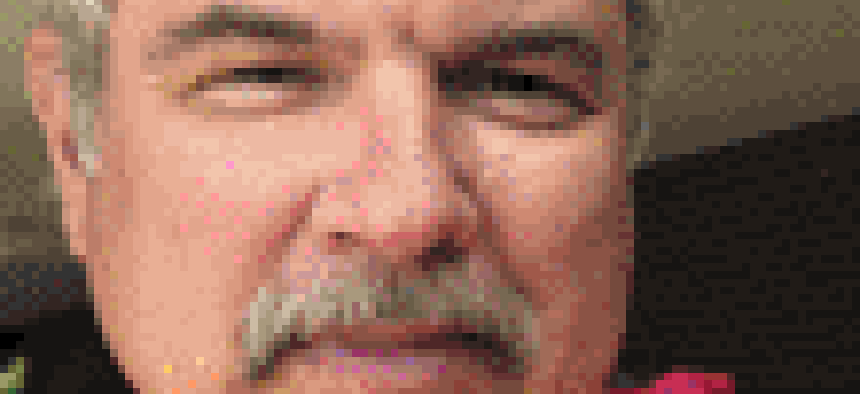Survival guide: Perspectives from the field -- Ron Shaffer, Washington Post traffic columnist

There may be few things more aggravating to companies and employees than traffic problems. And for those who serve the government sector, it's the downside of working with federal agencies: The Washington region regularly makes lists as one of the worst commutes in the nation.
There may be few things more aggravating to companies and employees than traffic problems. And for those who serve the government sector, it's the downside of working with federal agencies: The Washington region regularly makes lists as one of the worst commutes in the nation.Since 1986, Ron Shaffer, better known as Dr. Gridlock, has written a column for The Washington Post, parent company of Washington Technology magazine. He tracks the region's traffic woes, finds the correct officials to answer drivers' questions and responds to some of the hundreds of letters he receives each month. He describes himself as "the Ann Landers of commuters."Shaffer has heard claims that information technology will improve life behind the wheel. He spoke with staff writer Patience Wait on the gap between promise and reality, and suggested some down-to-earth ideas that would benefit drivers every day.Dr. Gridlock: We have been reported to be the second-most congested metropolitan area in the country, behind Los Angeles. Too many of our roads are over capacity during rush hour. We don't have the necessary funding available to relieve that congestion, and there's none in sight. We're growing outward, because homes are cheaper farther out, and farmers are selling their land for big bucks with no services attached ? no police, no fire, no roads [and] the counties are too strapped to provide them.Dr. Gridlock: I saw somewhere, I think it was in Southern California, a camera system at an intersection that monitored the traffic flow through the intersection in one direction. If someone came from the cross-direction, the traffic light would immediately change, then switch the light back to green for the street with the heavier flow. If that technology is there and can be introduced on a mass scale, that would help.Then ? I don't know if this exists, but if I'm just imagining ? at Radio Shack, you can get a little box the size of a wallet that will give you weather conditions wherever you happen to be. You push a button and the [National Oceanic and Atmospheric Administration] forecast comes on. I'd like something like that for gas prices. We have no idea where to exit on I-95 for gas, and it varies by as much as 40 cents a gallon. If we could just push a button and find out the prices, we'd know where to stop.Dr. Gridlock: I'm promoting satellite offices ? offices with computing technology, faxes, telephone lines. Look for one close to home. Then consider telecommuting. There could be staggered work hours to spread out rush hour. Why does everybody have to work the same hours? I can even see the time when the workday spreads to Saturday. If you're close enough to walk ? or bike, Metro is making racks available. ... There needs to be more bike trails and bikeways and [bike friendly] roads.Dr. Gridlock: It's interesting to me to see that develop, but I don't see that it will have a major impact on gridlock.Dr. Gridlock: Let me tell you a little anecdote. I was giving a speech, and I was saying I don't see any hope for easing gridlock. [A representative from the Information Technology Association of America] stood up and said, "We can make the difference." I went back to their offices with him, where the president gave me a presentation on his laptop. When it was done, I didn't have a single idea to put in the column about how it would change anything.It seems more gimmickry than solution. Maybe on the margins there will be something useful, but nothing substantial.I'm just a skeptic, but I would be glad to be proven wrong, to be shown how IT is going to make a huge difference in everybody's life. Tell your readers if they have suggestions about technologies that can help the traffic problems here in the DC area, that are in use and available to the general public, or to governments to help our citizens, I'd like to hear from them. I can be reached at , or by fax at (703) 352-3908.

WT: What is the extent of the traffic problems in the Washington area?
WT: If you could wish for one piece of technology that would be useful to drivers, what would it be?
WT:Are there improvements that can help ease traffic problems?
WT: Have you seen any benefit from using IT in the transportation sector?
WT: Why not?
drgridlock@washpost.com

Ron Shaffer, "Dr. Gridlock" of the Washington Post
WT: What is the extent of the traffic problems in the Washington area?
WT: If you could wish for one piece of technology that would be useful to drivers, what would it be?
WT:Are there improvements that can help ease traffic problems?
WT: Have you seen any benefit from using IT in the transportation sector?
WT: Why not?
drgridlock@washpost.com